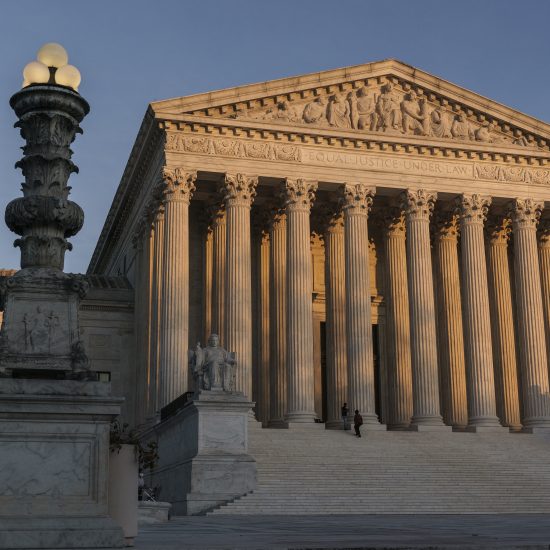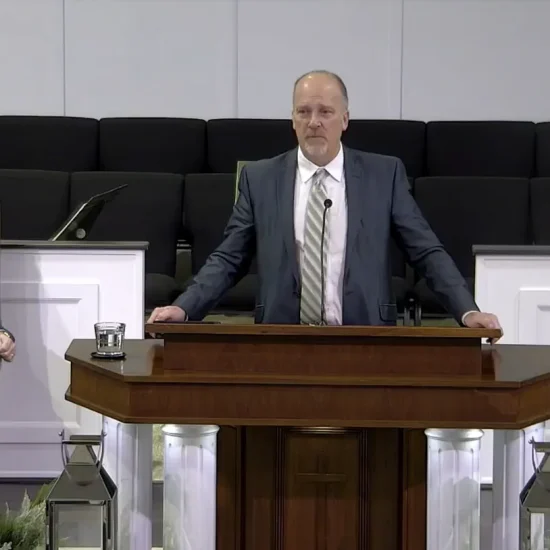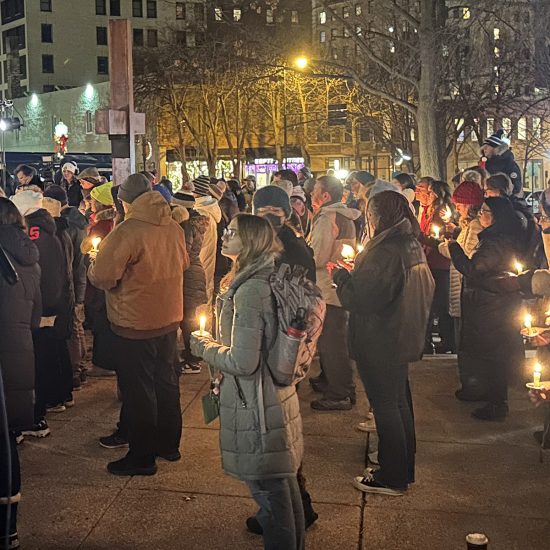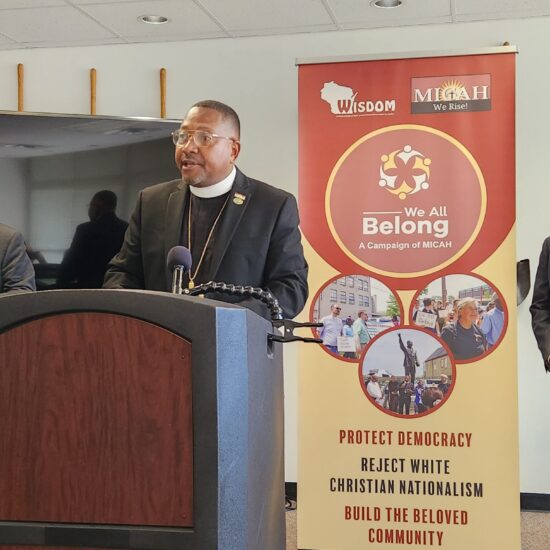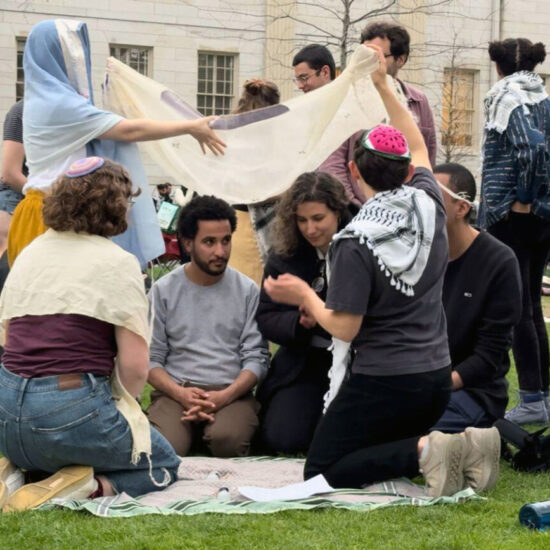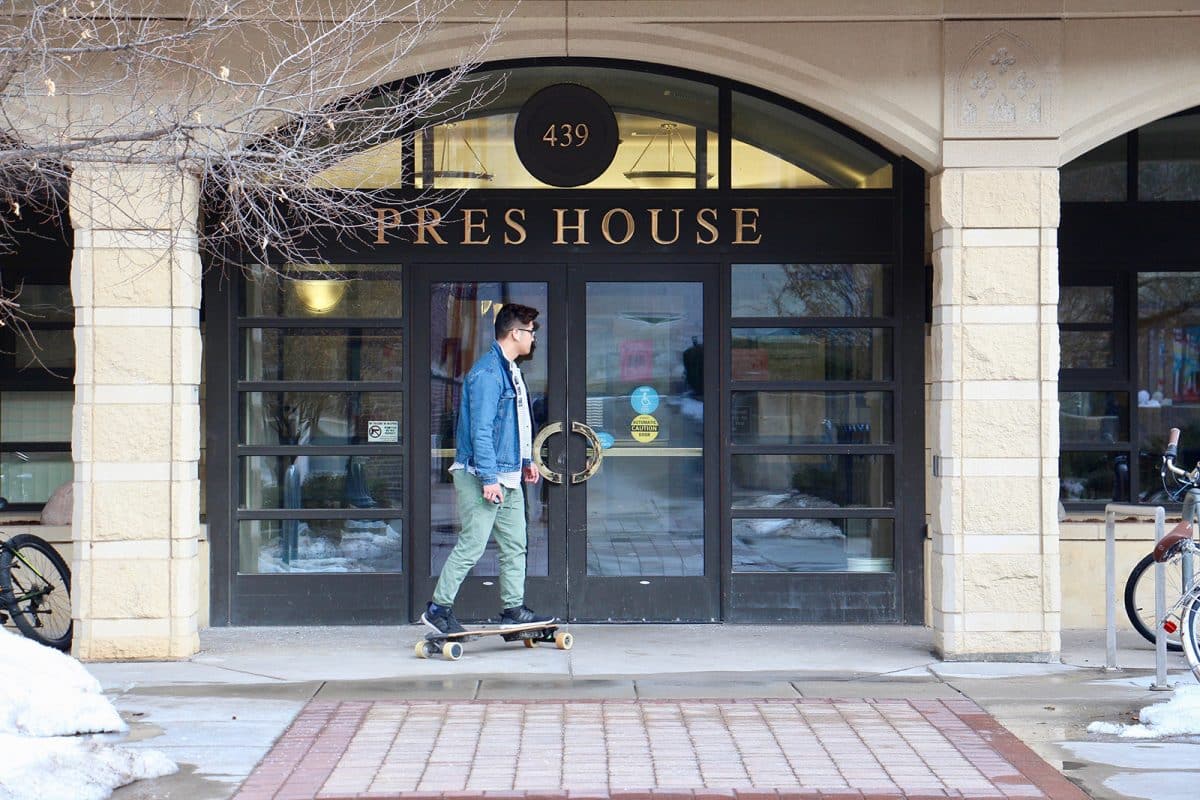
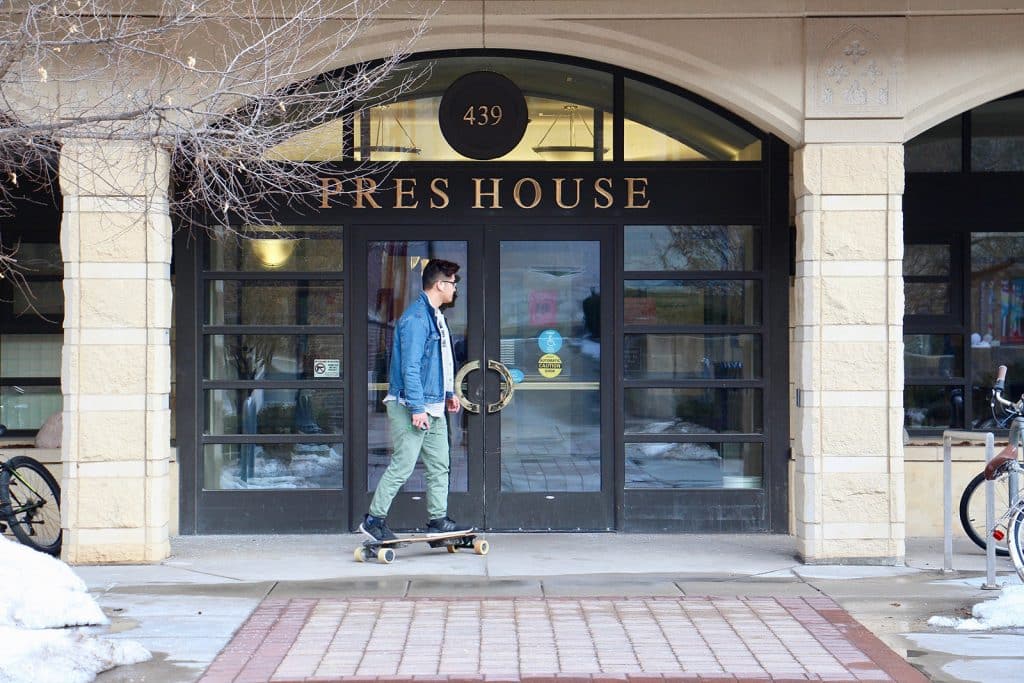
Pres House Apartments stand on what used to be the parking lot of Pres House, the campus ministry of the Presbyterian Church (U.S.A.) at the University of Wisconsin-Madison. RNS photo by Emily McFarlan Miller
MADISON, Wis. (RNS) — A spirit of innovation has animated Pres House since 1907, when Christ Presbyterian Church in Madison hired its first campus pastor.
And it’s that innovation that saved the historic campus ministry of the Presbyterian Church (U.S.A.) when Pres House nearly closed in 2000 amid decline in membership and giving in mainline Protestant Christian denominations.
“That’s just been the spirit of it — of having to innovate all the time because if you don’t, then it’s not relevant anymore,” said the Rev. Erica Liu, who co-leads Pres House.
Pres House started as a way to keep an eye on the church’s young people when they headed off to college, gathering in a small house on the campus of the University of Wisconsin-Madison.
But it soon expanded beyond that, according to Liu.
The campus ministry grew leaps and bounds during the “heyday of religion” in the first half of the 20th century.
The original “Presbyterian House” was torn down to make room for a Gothic Revival building, including a clubhouse and chapel with arched ceilings and stained glass windows. Leaders of the ministry had hoped to include student housing on the property, too, but their plans were derailed by the Great Depression.
Decades later, those plans were dusted off as a way to save Pres House, Liu said.
She and her husband, the Rev. Mark Elsdon, came to Madison in 2004 to revive the Presbyterian campus ministry, which had given way to an ecumenical campus ministry that met in the building for a while and then to other groups that needed space on campus.
The synod had considered selling off the property and using the proceeds to fund campus ministry at the University of Wisconsin-Madison and other colleges.
But Presbyterians in Madison objected. They wanted Pres House’s ministry — and its building — to be saved.
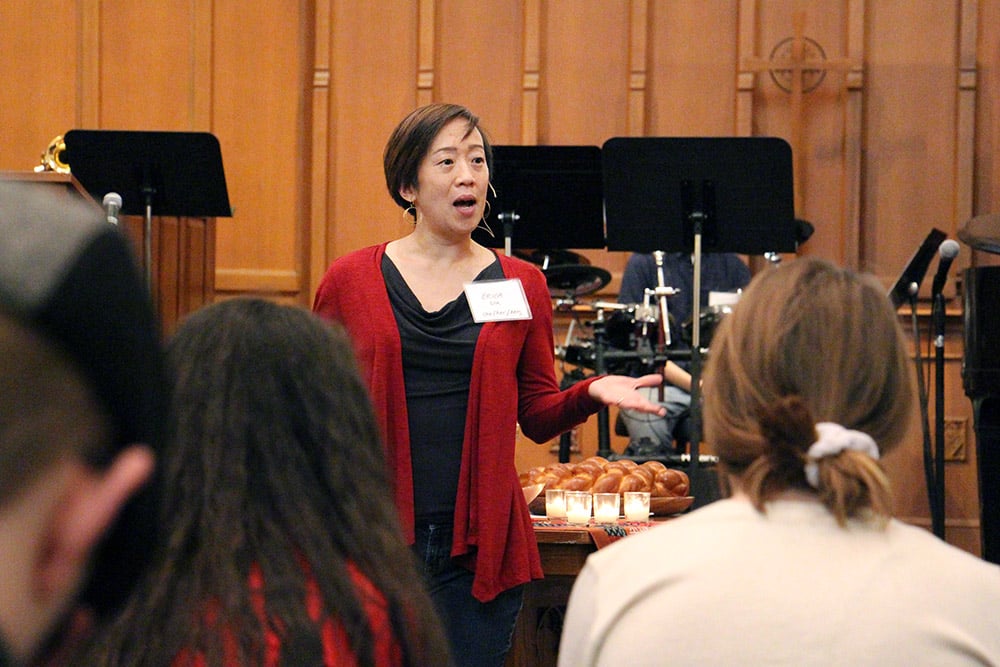
The Rev. Erica Liu speaks during worship, Sunday, Feb. 2, 2020, at Pres House, the campus ministry of the Presbyterian Church (U.S.A.) at the University of Wisconsin-Madison. RNS photo by Emily McFarlan Miller
The mandate was “something more than just start campus ministry,” Liu said.
“It was start something pretty new and try experiments and see if we can make it work.”
Instead of selling the building, Pres House’s board decided to construct an apartment building for students on its parking lot. In 2007, the seven-story Pres House Apartments opened next door to Pres House.
The complex was modeled after Westminster House, also a ministry of the Presbyterian Church (U.S.A.), on the University of California’s Berkeley campus.
The apartments serve both the mission of Pres House and its financial model, according to Elsdon.
Pres House organizes programming for students who live at the apartments, doing what it does best: community. The rent paid by about 250 students who live there in turn helps to support the ministry, which now has a $2.3 million annual budget.
Ginger Morgan, who worked as a chaplain and in higher education before coming to the apartments as director of community initiatives, described Pres House Apartments as a “ministry of hospitality and community building” motivated by faith, but not requiring anybody who lives there to belong to a particular faith.
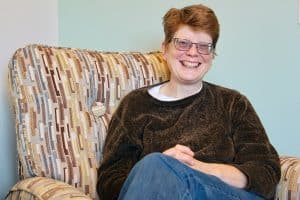
Ginger Morgan at Pres House Apartments in Madison, Wisconsin. RNS photo by Emily McFarlan Miller
Some residents belong to micro-communities that pitch ideas for shared interests or projects they want to pursue together in exchange for rent scholarships and programming money — several exploring food and culture, a variety dedicated to wellness. This year, for the first time, they include a Christian intentional living community.
Other residents may only show up to the monthly dinners.
For students, just getting out of their apartments for that meal and being with a group of people can be comforting, Morgan said.
“We don’t ask anything of them,” she said. “You just come and be there.”
That low-key approach to ministry has not been without its challenges.
Pres House paid almost half a million dollars in property taxes from 2007 to 2009 because “Madison’s assessor determined its primary use wasn’t religious and it didn’t offer low-income housing,” according to the Wisconsin State Journal.
The state Legislature eventually granted Pres House a tax exemption for the property, then tried to revoke it, according to reports.
Elsdon ended up registering as a lobbyist in order to fight to keep the tax exemption.
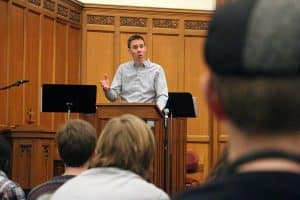
The Rev. Mark Elsdon speaks during worship, Sunday, Feb. 2, 2020, at Pres House, the campus ministry of the Presbyterian Church (U.S.A.) at the University of Wisconsin-Madison. RNS photo by Emily McFarlan Miller
Like so many of the things they’ve encountered in running a combination of campus ministry and student housing, Liu said, “Nobody trained us for that in seminary.”
A decade after church leaders tried to sell Pres House, Elsdon convinced them to invest in the ministry instead, pulling some of the local synod’s money out of the traditional investments like stocks and bonds and putting it into real estate — specifically, refinancing Pres House’s property.
Now every dollar donated to Pres House goes directly to students, he said.
It’s something the co-pastor has become passionate about – convincing mainline Protestant denominations to use their resources creatively, despite their declining membership numbers.
Pres House shows what a denomination can do when it focuses on the resources it has, rather than worrying about what it doesn’t have, according to Elsdon.
“I think a lot of the issue for campus ministry is structural and financial,” he said.
“I mean, we couldn’t have done any of what we’re describing without space, without property to build on, without an endowment to spend down, without a commitment from our board to just do it.”

